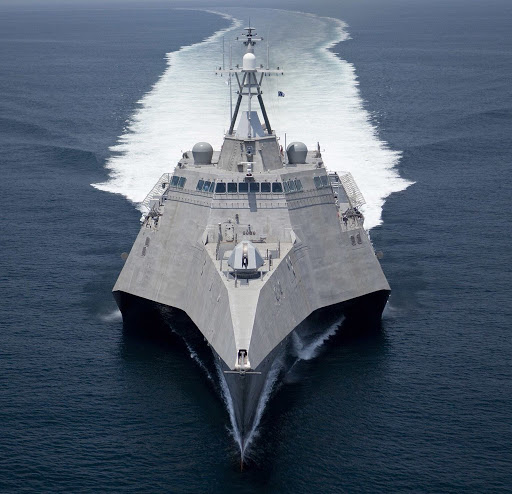Life Cycle Engineering Successfully Executes Littoral Combat Ship (LCS) Preventive Maintenance Availability (PMAV)
solutions
sectors

The U.S. Navy’s Littoral Combat Ships (LCS) are fast, agile, mission-focused, and platform-designed for operations in near-shore environments, yet are also capable of open-ocean operations.
The LCS program departs from traditional Navy shipbuilding programs in its use of innovative acquisition, construction, minimal manning, training, and operational concepts. The LCS sustainment strategy accommodates the unique design and minimal-manning of LCS and the associated mission modules. This strategy’s elements include reliance on off-ship support, a paradigm of maintenance execution focused on monthly preventive maintenance periods, non-crew performance of preventive and facilities maintenance, a Blue and Gold crewing model, and reliance on shore-based and virtual training for off-hull and pre-commissioning crews.

To support a minimally-manned ship, the modest shore support organization provides the latest distance-support tools. The Maintenance Support Team (MST) delivers LCS distance support. MSTs coordinate with the Regional Maintenance Centers (RMCs), Mission Package Support Facility (MPSF), and Mission Module Readiness Centers (MMRCs), and supply enterprise for all LCS maintenance and logistics issues.
To support the execution of Preventive Maintenance Availabilities (PMAVs), RMCs team with government contracting agencies and support LCS both when they are in home port and when they are forward deployed.
Life Cycle Engineering (LCE) was awarded a 16-month contract to execute PMAVs on both LCS variants — the Freedom variant and the Independence variant – which were designed and built by two industry teams.
At Naval Base San Diego, LCE performed advance scoping and planning, ordered all required material, teamed with dozens of service contractors, and, along with a dedicated senior project manager and a tiger-team of maintenance experts, executed 127 LCS PMAVs over 16 months. After required crew deferrals, LCE completed all PMAVs with an average completion rate of 96%, including 41 of those 127 executed with a 100% completion rate of required maintenance checks.
LCE recently executed an LCS PMAV in Balboa, Panama, with an 89% raw completion rate (100% adjusted with crew deferrals), the highest completion rate ever executed for a PMAV completed OCONUS.
Life Cycle Engineering’s proven performance in executing LCS PMAVs helps maintain the LCS program at a high state of readiness to support national tasking.

To learn more about how LCE supports the U.S. Navy,
please visit Marine Engineering on LCE.com

